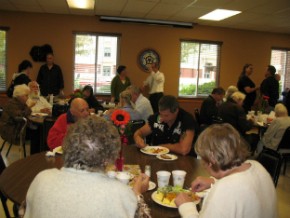Where issues have faces

It was the kind of conversation that makes pastors enjoy professional conferences—the kind that has nothing to do with the conference. We were drinking coffee at a table in the hotel lobby. I was amazed at how quickly the conversation became a common lament.
“I want to get back to being a pastor,” said the man across the table. “I’m so tired of trying to navigate our church through the debates about divestment and gay marriage. These issues are sucking up all the air in the congregation.”
Another pastor said, “We have gays in our congregation. We know them, love them, and have worked beside them on mission trips, committees, and Sunday school. If two of them wanted to get married, the congregation wouldn’t blink an eye. But if the elders are forced to vote on a policy about gay marriage, it will tear the church in half.”




